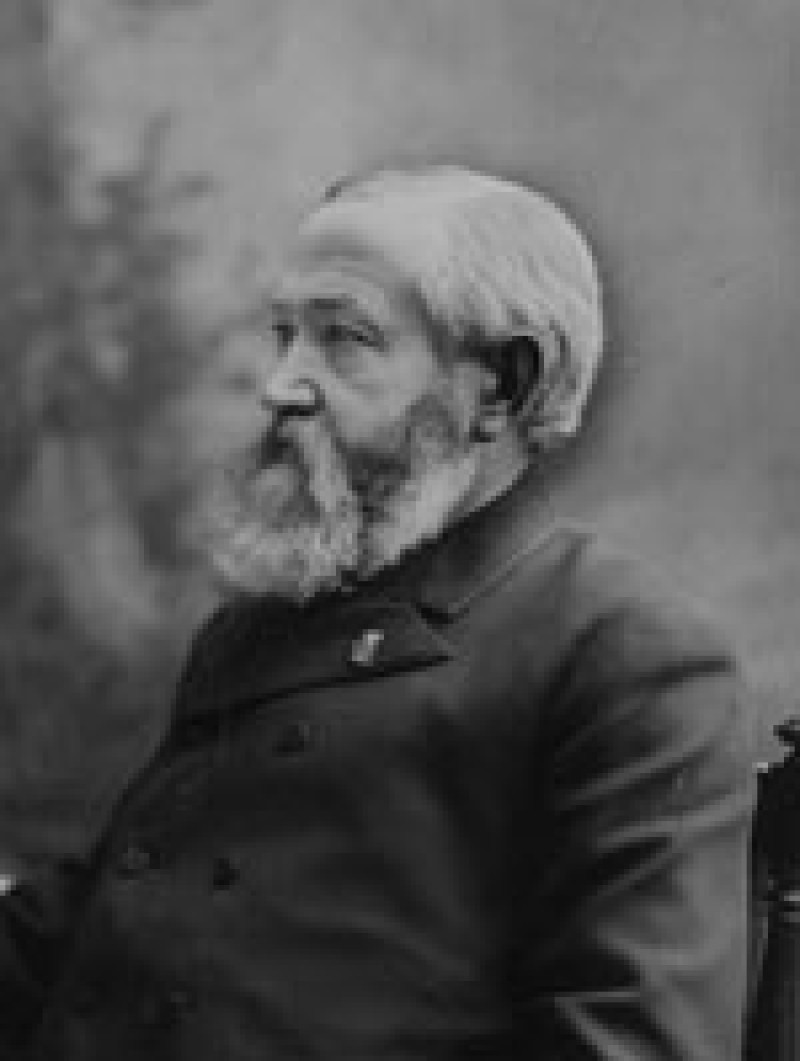Benjamin Harrison (Aug. 20, 1833 - March 13, 1901)
Typically described as reserved and self-contained, perhaps Benjamin Harrison was unsuited for the political arena of the late 19th century. He deserves recognition as one of those devout, honest, sober leaders of the generation that founded the Republican Party and as one who tried to keep the nation on an even keel through the turbulent years of the Gilded Age.
Harrison, 23rd president of the United States, was born in North Bend, Ohio. Harrison graduated from Miami University in 1852. After studying law for two years, in 1854 Harrison moved to Indianapolis to begin a legal practice. He enthusiastically supported the new Republican Party and soon launched his own political career. Harrison moved up the political ladder from city attorney to secretary of the Republican State Committee to reporter for the Indiana Supreme Court between 1857 and 1862.
Harrison then served with distinction in the Civil War. He organized the 70th Indiana Regiment in July 1862 and within a month was promoted from second lieutenant to colonel. He received a promotion to the rank of brigadier general in February 1865.
After the war Harrison returned to Indiana. Over the next five years Harrison emerged as an important figure on the national political scene. President Rutherford B. Hayes had acknowledged Harrison's service to the party in Indiana and had provided the opportunity for Harrison to develop his reputation outside of Indiana.
Harrison chaired the Indiana delegation to the Republican National Convention of 1880 and strengthened his ties to the Plumed Knight, Senator James G. Blaine of Maine. James A. Garfield's victory in the presidential election presented Harrison with an opportunity to enter the cabinet, but the Indiana legislature elected Harrison to the Senate in 1881.
Though Harrison trailed four other candidates in the presidential nomination on the first ballot at the Republican National Convention of 1888, the backing of Blaine and the move to Harrison on the fourth ballot by most of New York's 72 delegates provided the momentum that led to the presidential nomination on the eighth ballot.
President Grover Cleveland had defined the major issue in the election of 1888 when he devoted his entire annual message of 1887 to a call for tariff reform. Harrison responded with what was recognized as a very effective campaign in defense of the protective tariff, delivering some 90 speeches from his front porch in Indianapolis.
Harrison served as president during the four years preceding the depression of 1893. He has been criticized for contributing to the collapse of the nation's economy by accepting the agenda of the Billion Dollar Congress" of 1890, which produced controversial legislation on monetary policy and tariff rates.
In 1890 the Republican Party lost some 80 seats in the House of Representatives and lost control to the Democrats. The election seemed to be a referendum on Harrison's leadership, particularly because he had tried to reverse the tide with a campaign tour of almost 3,000 miles across the Midwest. Many Republicans, including some of the most powerful figures in the party, began to see Harrison as a lame duck who could not possibly lead them to victory in the presidential election of 1892.
However, Harrison had won a second nomination on the first ballot at the Republican National Convention of 1892. It had not been easy. Blaine, who resigned just days before the opening of the convention, had allowed the bosses to use his name, and he received 182 votes. Another 182 delegates supported Governor William McKinley of Ohio. The combined votes for Blaine and McKinley indicated the depth of the opposition to Harrison, who refused another nomination, particularly because of his wife's serious illness.
Harrison returned to Indianapolis to practice law for clients who wished to retain the services of a former president and who could afford his fees. In 1894, one year after the death of railroad magnate Leland Stanford, who had served with Harrison in the Senate, Harrison accepted a generous honorarium and agreed to honor the memory of Stanford with a series of lectures at Stanford University. Harrison died in Indianapolis in 1899.
Some content and graphic elements featured on webpages related to the Thomas J. Moyer Ohio Judicial Center were used with the permission of the Ohio Historical Society; the Prints and Photographs Division of the Library of Congress; the Office of the Curator of the Supreme Court of the United States and American National Biography Online.
Biography of Benjamin Harrison (Aug. 20, 1833 - March 13, 1901)
Citation: Allan Burton Spetter. "Harrison, Benjamin"; http://www.anb.org/articles/05/05-00320.html; American National Biography Online Feb. 2000. Access Date: Fri Oct 3 09:50:42 2003. Copyright © 2000 American Council of Learned Societies. Published by Oxford University Press. All Rights Reserved.
Portrait of Benjamin Harrison - Library of Congress, Prints & Photographs Division.

